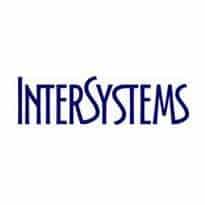Guernsey is extending its TrakCare electronic patient record system to 900 social care workers.
The States of Guernsey Health and Social Services department went live with InterSystems’ TrakCare in late 2009 as a key element of its island-wide Electronic Health and Social Care Record project.
The department is building the record using a best of breed strategy using InterSystem’s Ensemble integration platform.
States of Guernsey director of business and systems development Alan Chapman said Guernsey had set itself a very ambitious, 18-month roll-out plan for TrakCare, but this was “totally unrealistic”.
A flexible partnership with InterSystems meant time scales were extended to allow for better clinical engagement, resulting in a much more successful deployment, he explained.
The project is now expected to be completed over the next year.
Chapman said Guernsey had changed its approach to clinicians from telling them they have a new system to use, to making clinicians part of the project team, working on configuration and testing the system all the way through its design.
The scope of the EHSCR project had also been increased to include much greater integration with community, he said.
TrakCare Community is already in use for community mental health and the system is under development for use by 800-900 social care workers by the end of this year.
Chapman said the department was trialling the use of iPads and looking at a partnership with BlackBerry to enable mobile and offline working for staff.
InterSystems director of marketing Mike Fuller said the Guernsey community system was a new development for the company.
“We have been concentrating on acute care, but Guernsey has an integrated care model which is where a lot of NHS trusts want to get to.”
He described Guernsey as a “design partner” in developing the community product and said a UK version would be available to NHS trusts in England.
Chapman said TrakCare formed the core of the island’s electronic patient record and had around 40 interfaces with other systems such as EuroKing in maternity.
Order communications went live 18 months ago starting with radiology and followed by pathology a year later.
Chapman said the benefits in radiology were “almost immediate”. Waiting times for booking non-urgent radiology appointments reduced from 2-3 weeks to 2-3 days.
TrakCare has been live in mental health for more than a year, where staff enter clinical notes directly into the electronic record. Clinical noting is also being piloted in acute care and Chapman hoped to roll it out in 2013.
Guernsey plans to implement e-prescribing over the next year and is looking to deploy an electronic document management system as well as digital dictation and digital pens.
It is also looking to include GPs in its integrated records project by linking its EPR with primary care system Emis.
Chapman said Guernsey was on track to meet projected savings of £14m over the 10-year life of its EHSCR project against costs of £11m.
However, this figure was expected to increase as it did not include the benefits of order communications or potential savings around the extension of TrakCare to community care.
Most of the savings were being achieved through a reduced need for new administrative staff and current staff being transferred to other areas.
TrakCare’s business intelligence system was also helping the department achieve better workforce planning and bed management meant the hospital was able to safely close wards when they were not needed, he added.

